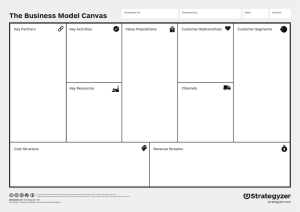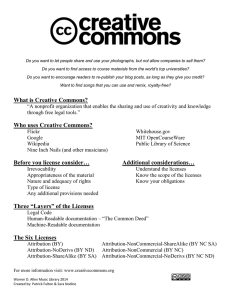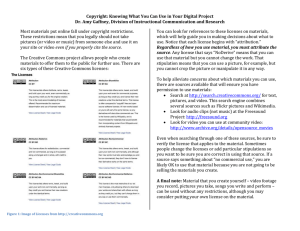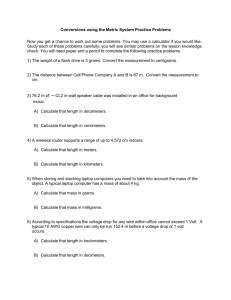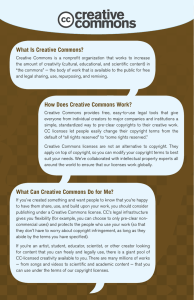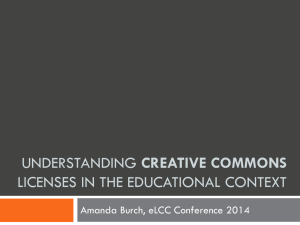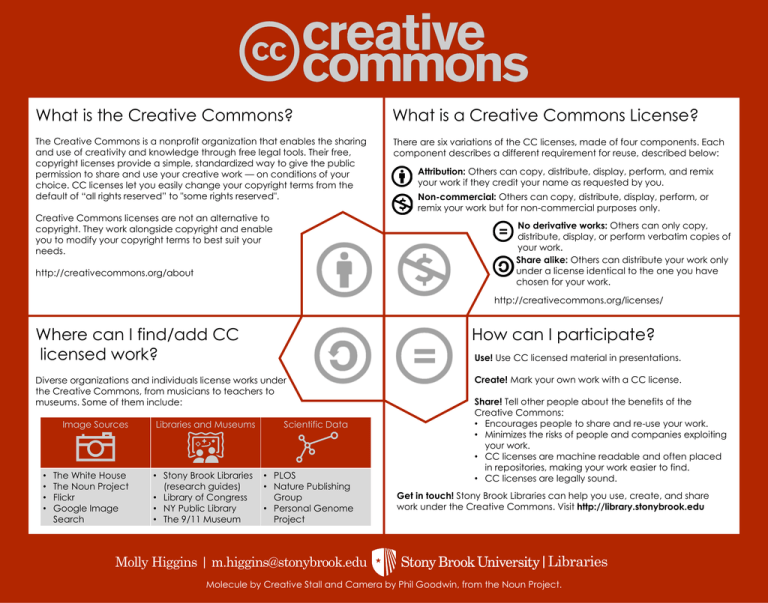
What is the Creative Commons?
What is a Creative Commons License?
The Creative Commons is a nonprofit organization that enables the sharing
and use of creativity and knowledge through free legal tools. Their free,
copyright licenses provide a simple, standardized way to give the public
permission to share and use your creative work — on conditions of your
choice. CC licenses let you easily change your copyright terms from the
default of “all rights reserved” to "some rights reserved".
There are six variations of the CC licenses, made of four components. Each
component describes a different requirement for reuse, described below:
Creative Commons licenses are not an alternative to
copyright. They work alongside copyright and enable
you to modify your copyright terms to best suit your
needs.
Attribution: Others can copy, distribute, display, perform, and remix
your work if they credit your name as requested by you.
Non-commercial: Others can copy, distribute, display, perform, or
remix your work but for non-commercial purposes only.
No derivative works: Others can only copy,
distribute, display, or perform verbatim copies of
your work.
Share alike: Others can distribute your work only
under a license identical to the one you have
chosen for your work.
http://creativecommons.org/about
http://creativecommons.org/licenses/
Where can I find/add CC
licensed work?
How can I participate?
Use! Use CC licensed material in presentations.
Diverse organizations and individuals license works under
the Creative Commons, from musicians to teachers to
museums. Some of them include:
•
•
•
•
Image Sources
Libraries and Museums
The White House
The Noun Project
Flickr
Google Image
Search
• Stony Brook Libraries
(research guides)
• Library of Congress
• NY Public Library
• The 9/11 Museum
Scientific Data
• PLOS
• Nature Publishing
Group
• Personal Genome
Project
Create! Mark your own work with a CC license.
Share! Tell other people about the benefits of the
Creative Commons:
• Encourages people to share and re-use your work.
• Minimizes the risks of people and companies exploiting
your work.
• CC licenses are machine readable and often placed
in repositories, making your work easier to find.
• CC licenses are legally sound.
Get in touch! Stony Brook Libraries can help you use, create, and share
work under the Creative Commons. Visit http://library.stonybrook.edu
Molly Higgins | m.higgins@stonybrook.edu
Molecule by Creative Stall and Camera by Phil Goodwin, from the Noun Project.

